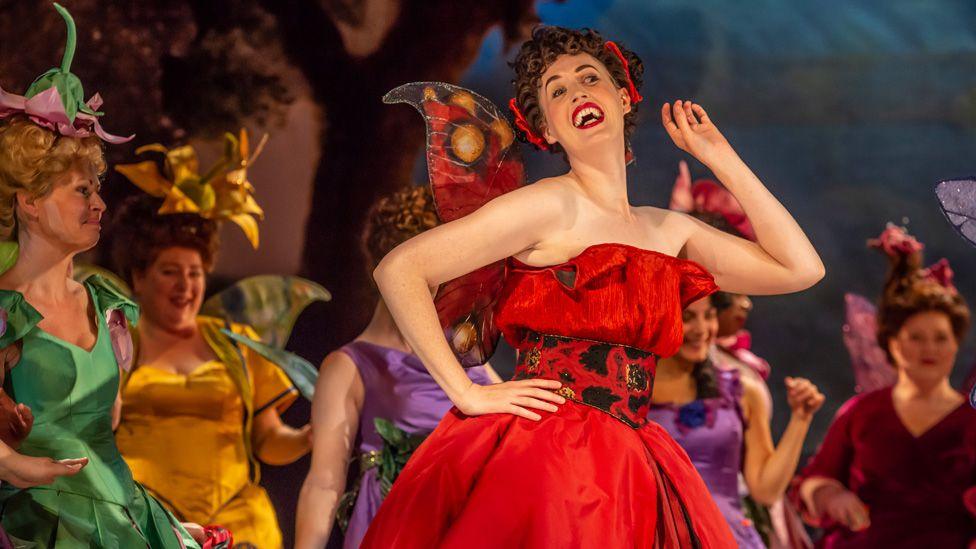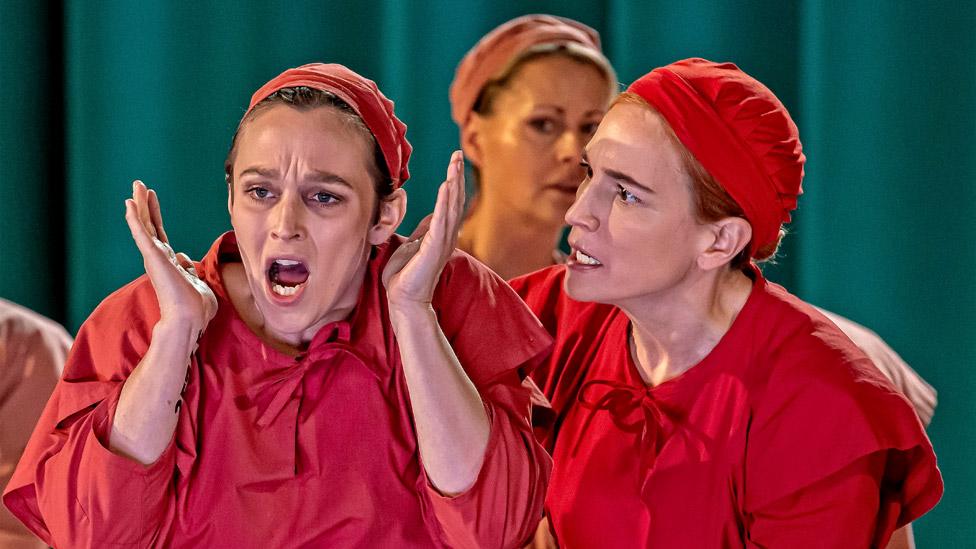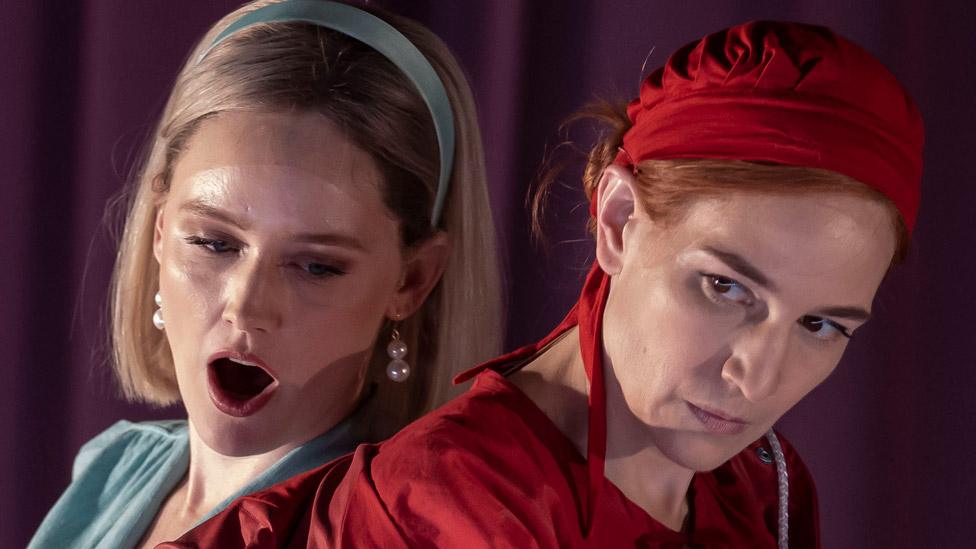English National Opera reveals first Manchester plans

The ENO staged Iolanthe by Gilbert and and Sulivan at the London Coliseum last year
- Published
The English National Opera has announced its first productions and plans for Manchester after being forced to relocate out of London.
In 2022, the prestigious opera company was controversially told to leave the capital or lose its £12m annual Arts Council England subsidy, as part of an attempt to "level up" arts funding.
The ENO now says it will be "firmly established" in Greater Manchester by 2029.
But it will start working in the city before that, with productions at the Lowry, Bridgewater Hall and Aviva Studios from 2025, and plans for a mass singing project with local grassroots football teams.
It has announced:
A production of Philip Glass and Robert Wilson's opera Einstein on the Beach, directed by Phelim McDermott, for spring 2027
The UK premiere of Angel's Bone, which won the 2017 Pulitzer Prize for Music, at Aviva Studios in May 2026
Benjamin Britten's Albert Herring at the Lowry in October 2025
A staged concert version of Mozart's Cosi Fan Tutte at the Bridgewater Hall in February 2026
The ENO will also form a new Greater Manchester Youth Opera Company for people aged 13 to16, and will set up a scheme to develop "new voices and stories in opera".
The football initiative, titled Perfect Pitch, will "explore the impact that mass singing has on team performance and spectator experience", the company said.
ENO artistic director Annilese Miskimmon said the move would begin "a bold and confident future for opera in the UK".
Chief executive Jenny Mollica said Greater Manchester was “a region of limitless creative possibilities”, which would allow the company to “explore new visions for the future of opera”.
The productions staged in Manchester will range from "larger scale traditional opera to more experimental work to more intimate and chamber work", and would allow the company to reach "a wider range of audiences", she said.
'Disastrous first date'
The announcements follow two years of turmoil for the company since the relocation demand was made.
The Arts Council originally said it would effectively halve the ENO's grant even if it did agree to move, and gave the company until 2026 to relocate. But the Arts Council has since provided extra funds and extended that deadline.
The ENO’s initial reluctance to agree to the idea of a relocation led Greater Manchester Mayor Andy Burnham to tell them: "If you can't come willingly, don't come at all."
At a launch event on Thursday, he admitted the relationship between the company and the city had "got off to an awkward or even mildly disastrous first date", but said the ENO had proved they do want to be there.
"It was clear there was a meeting of minds and a partnership that's going to work for both sides," he told BBC News.
The upheaval has led the ENO to make cuts to its orchestra and chorus, which are based in London. Members threatened to strike earlier this year over plans to make them all redundant and re-employ them for six months a year.
The company's music director Martyn Brabbins resigned in protest at the cuts.
The strike was eventually called off after the company agreed seven-month contracts.
'Falls short'
Even after moving its headquarters, the company will continue to stage annual seasons at its current home, the London Coliseum.
The chorus and orchestra will perform in both London and Manchester, and the company will work with Manchester-based outfits like the Halle Orchestra and BBC Philharmonic, and local freelance musicians.
Musicians' Union general secretary Naomi Pohl said it was "certainly positive to see the artistic vision coming through in the announcement from ENO and we wish to see them flourish and grow".
She also welcomed the continued presence at the London Coliseum, and said she would "keep an eye on the impact of ENO's work in Manchester on companies that already perform with musicians in that space".
Leeds-based Opera North currently tours to venues including the Lowry.
"Music is a delicate and complex ecosystem," Pohl added. "Opera and ballet are under particular strain at the present time due to funding pressures and we are fighting to maintain full time jobs and pay."
Paul Fleming, general secretary of arts union Equity, agreed that new opera productions and engagement programmes in Manchester were welcome, but said "it falls short of a season at the scale audiences deserve".
"Although the proposed innovative work will reach those who have not previously engaged with opera before, it does not offer the scale of production or stability of engagement that would lead to the protection and creation of secure jobs for the opera workforce," he said.
Related topics
- Published29 January 2024

- Published5 December 2023

- Published15 December 2022
